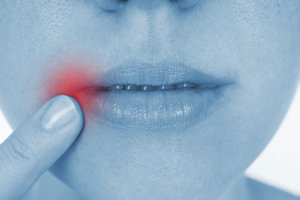How Can Shisha Smokers Easily Catch Herpes
 Around the globe, the health consequences and allure of the addictive water pipe tobacco are spreading. Shisha smoking is not a harmless form of smoking. It can be as dangerous as cigarettes. The long-term consequence of Shisha smoking would be increased dependency. All this proves that Shisha smoking cannot be dismissed as safe alternative. Aside from that, Shisha users are also susceptible in catching infectious disease like Herpes. So that knowing Shisha and its connection in the spread of Herpes is important in the health of everyone.
Around the globe, the health consequences and allure of the addictive water pipe tobacco are spreading. Shisha smoking is not a harmless form of smoking. It can be as dangerous as cigarettes. The long-term consequence of Shisha smoking would be increased dependency. All this proves that Shisha smoking cannot be dismissed as safe alternative. Aside from that, Shisha users are also susceptible in catching infectious disease like Herpes. So that knowing Shisha and its connection in the spread of Herpes is important in the health of everyone.
Shisha smoking is gaining popularity all across the nation, even though some city or state jurisdictions have banned tobacco use in public places; we are all familiar with their presence by now. They get to stay open for business because they can purchase a special permit that allows people to smoke in their establishment.
We wants to be in a group, be a member of the crowd and in our society as a whole. Some people even get involved to do activities and social events they know, the result will not be pleasant. We know the bad crowd and we know the bad staff, and when given the situation it is as if easy for us to do otherwise. This is a call for us to arm ourselves with knowledge about Herpes, in order for us to know what to do; read the following to be informed.
What is Herpes?
Herpes simplex is a viral disease caused by both Herpes simplex virus type 1 (HSV-1) and type 2 (HSV-2). Infection with the herpes virus is categorized based on the site of infection.
- Oral herpes (HSV-1) – are colloquially called ‘cold sores’ or ‘fever blisters’ infect the face and mouth. Oral herpes is the most common form of infection.
- Genital herpes (HSV-2) – known simply as ‘herpes’, is the second most common form of herpes.
Herpes viruses cycle between periods of active disease—presenting as blisters containing infectious virus particles—that last 2–21 days, followed by a remission period. Genital herpes, however, is often asymptomatic, though viral shedding may still occur. After initial infection, the viruses are transported to the sensory nerve cell, where they become latent and reside life-long. Causes of recurrence are uncertain, though some potential triggers have been identified, including immunosuppressant drugs. The previously latent virus then multiplies new virus particles in the nerve cell and these are transported along to the nerve terminals in the skin, where they are released.
Herpes simplex is most easily transmitted by direct contact with a lesion or the body fluid of an infected individual. Oral herpes is easily diagnosed if the patient presents with visible sores or ulcers. Early stages of orofacial herpes and genital herpes are harder to diagnose.
What are the Symptoms of Oral Herpes?
Primary orofacial herpes is readily identified by the examination of persons with no previous history of lesions and contact with an individual with known HSV-1 infection. The appearance and distribution of sores in these individuals typically presents as multiple, round, superficial oral ulcers, accompanied by acute gingivitis.
What are the Treatments for Herpes and its Prevention?
A cure for herpes has not yet been developed. Once infected, the virus remains in the body for life. Recurrent infections (outbreaks) may occur from time to time, especially in times of immune impairment such as HIV and cancer-related immune suppression. However, after several years, some people will become perpetually asymptomatic and will no longer experience outbreaks, though they may still be contagious to others. Treatments with antivirals can reduce viral shedding and alleviate the severity of symptomatic episodes. Vaccines are in clinical trials but have not demonstrated effectiveness.
State, county and local governments may need to consider restricting the use of Shisha in public places because the Shisha apparatus is not 100% sterilized before being used by another person, and separate mouthpieces and disposable hoses do not eliminate the risk of spreading infectious disease through the hookah.
Since, one can never be sure if the apparatus used in Shisha bar and outlets are cleaned and sanitized. Still the best prevention is to not smoke Shisha at all.
How is Oral Herpes Connected to Shisha?
Herpes is contracted through direct contact with an active lesion or body fluid of an infected person like the saliva. Because people share hookahs, and multiple mouths in hookah-smoking social group touch the mouth of the pipe and share the smoke, a person could quite literally catch Herpes from the hookah itself. This is something else to think about before inhaling, or even putting your lips on that supposedly sanitized mouthpiece; because some bars and cafes may not clean hookah pipes properly.
Today, public health agencies are deeply concerned about the increased risk of contracting infectious diseases via shared hookah, and non-sterilization of the hookah apparatus. Herpes is just one of the infectious diseases that can be spread easily through Shisha.
While smoking Shisha may seem like a fun-flavoured social way to get your tobacco fix, smoking comes with its own health risks. The knowledge you know will make a big difference, in you not catching this disease. Ignorance in the topic will only make you pay a big price. Be wise and read more about Shisha.